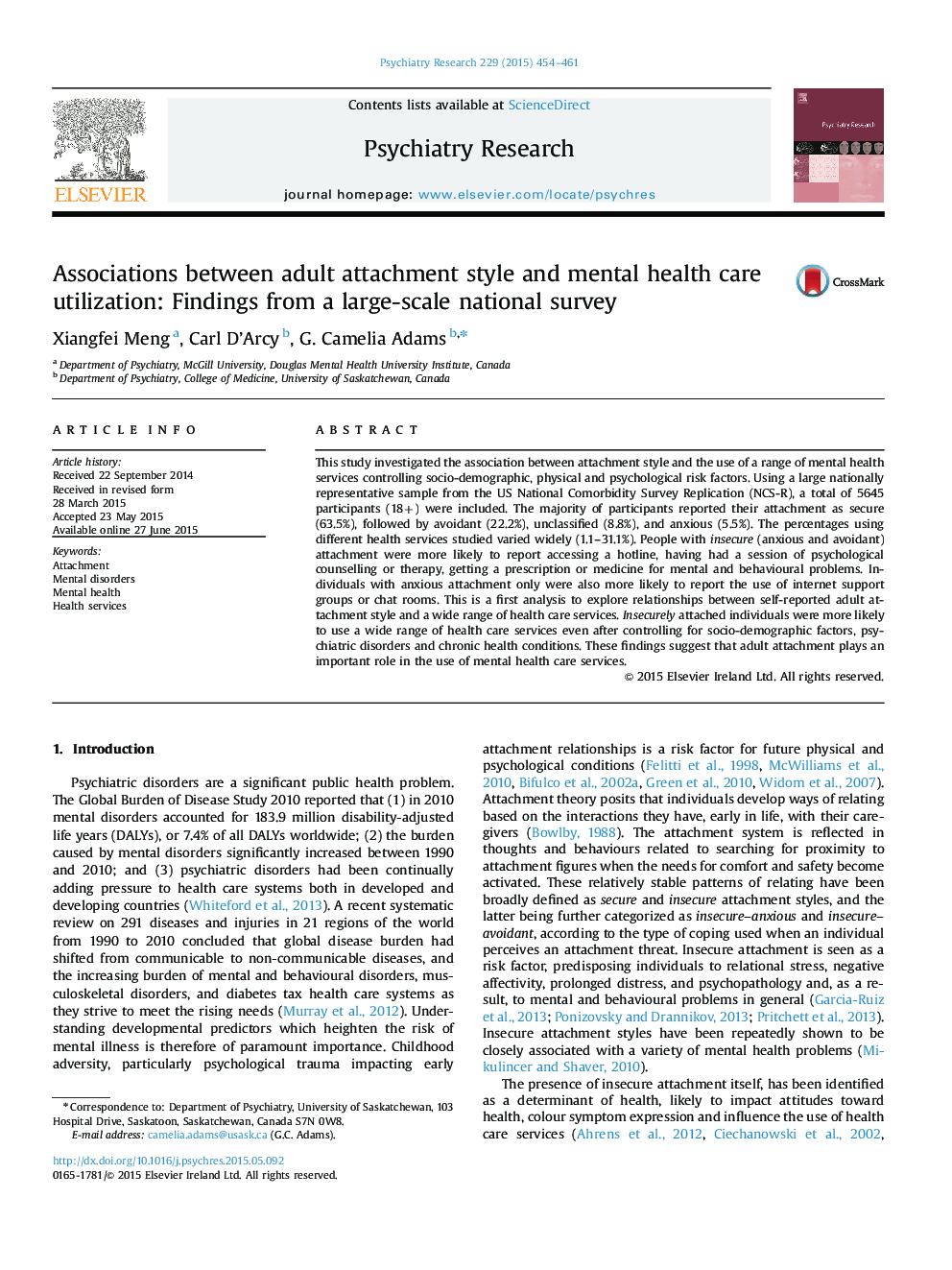| Article ID | Journal | Published Year | Pages | File Type |
|---|---|---|---|---|
| 6814252 | Psychiatry Research | 2015 | 8 Pages |
Abstract
This study investigated the association between attachment style and the use of a range of mental health services controlling socio-demographic, physical and psychological risk factors. Using a large nationally representative sample from the US National Comorbidity Survey Replication (NCS-R), a total of 5645 participants (18+) were included. The majority of participants reported their attachment as secure (63.5%), followed by avoidant (22.2%), unclassified (8.8%), and anxious (5.5%). The percentages using different health services studied varied widely (1.1-31.1%). People with insecure (anxious and avoidant) attachment were more likely to report accessing a hotline, having had a session of psychological counselling or therapy, getting a prescription or medicine for mental and behavioural problems. Individuals with anxious attachment only were also more likely to report the use of internet support groups or chat rooms. This is a first analysis to explore relationships between self-reported adult attachment style and a wide range of health care services. Insecurely attached individuals were more likely to use a wide range of health care services even after controlling for socio-demographic factors, psychiatric disorders and chronic health conditions. These findings suggest that adult attachment plays an important role in the use of mental health care services.
Related Topics
Life Sciences
Neuroscience
Biological Psychiatry
Authors
Xiangfei Meng, Carl D'Arcy, G. Camelia Adams,
